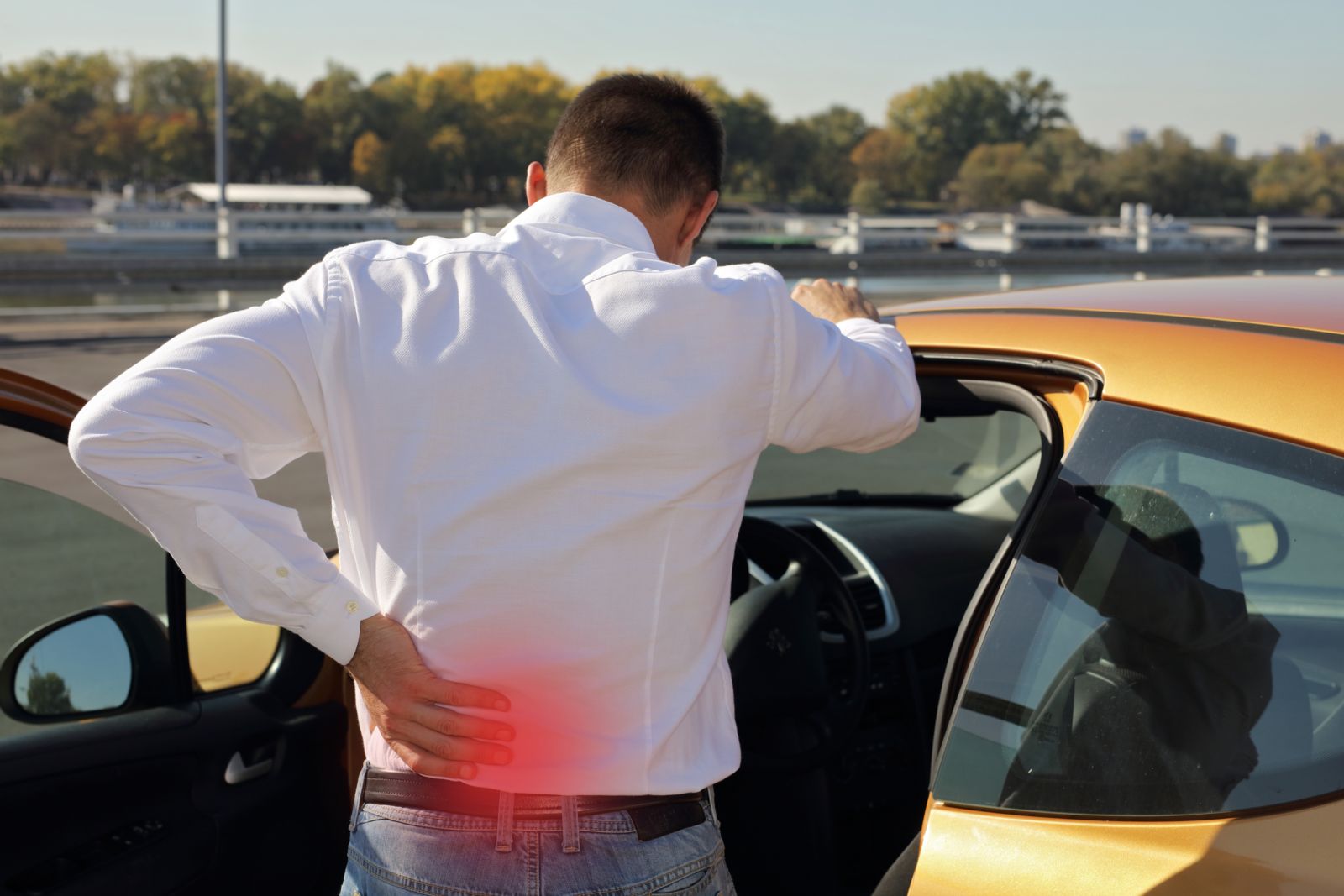
When addressing spinal cord injuries from car accidents, choose a comprehensive approach to recovery with the guidance of the Law Offices of Kyle E. Koester. With a history of expertise in personal injury law, the managing attorney, Kyle Koester, practices in Woodstock, GA, and surrounding areas, making them well-suited to provide valuable insights on recovery options. Embrace physical therapy, rehabilitation programs, surgical interventions, assistive devices, pain management techniques, psychological support, and lifestyle modifications for the best results. Maximize your potential for recovery by exploring these proven avenues.
Key Takeaways
- Physical rehabilitation: crucial for strength and mobility.
- Surgical interventions: stabilize and relieve pressure.
- Assistive devices: aid in independence post-injury.
- Pain management techniques: medication and therapy for relief.
- Support system: mental health support and camaraderie.
Physical Therapy
If you’ve recently experienced a spinal cord injury from a car accident, physical therapy can play an important role in your recovery. After such a traumatic event, it’s understandable to feel overwhelmed, but engaging in physical therapy can greatly improve your chances of regaining strength, mobility, and independence. Your physical therapist will work closely with you to create a personalized treatment plan tailored to your specific injury and needs.
During your physical therapy sessions, you will engage in a variety of exercises aimed at improving your range of motion, strength, and coordination. These exercises may start off gently to avoid further injury but will gradually progress as your body begins to heal. Your therapist will also incorporate stretching routines to prevent muscle stiffness and promote flexibility in the affected areas.
Apart from exercises, your physical therapist may use modalities such as heat or ice packs, electrical stimulation, or ultrasound to help reduce pain and inflammation in the injured area. They will closely monitor your progress, making adjustments to your treatment plan as needed to make sure you are on the right track to recovery.
Remember that consistency and dedication to your physical therapy regimen are key to seeing positive results. It may be challenging at times, but staying committed to the process will ultimately lead to improvements in your overall well-being and quality of life.
Rehabilitation Programs
Participating in rehabilitation programs post-spinal cord injury from a car accident is essential for your recovery journey, focusing on enhancing your physical and cognitive abilities. These programs are designed to help you regain independence, improve your quality of life, and maximize your overall well-being. Here are three key components of rehabilitation programs that can aid in your recovery:
- Physical Therapy: Through specialized exercises and techniques, physical therapy aims to strengthen your muscles, improve your coordination, and enhance your mobility. This can help you regain control over your body and improve your ability to perform daily activities.
- Occupational Therapy: Occupational therapy focuses on helping you develop the skills needed to participate in work, leisure, and self-care activities. This type of therapy can assist you in adapting to any physical limitations resulting from your spinal cord injury, making it easier for you to engage in various tasks independently.
- Cognitive Rehabilitation: In addition to physical challenges, a spinal cord injury can also impact cognitive functions such as memory, attention, and problem-solving. Cognitive rehabilitation programs help you sharpen these skills through targeted exercises and strategies, enabling you to overcome cognitive impairments and enhance your overall mental functioning.
Surgical Interventions
To address severe spinal cord injuries resulting from car accidents, surgical interventions play an essential role in restoring function and relieving pressure on the affected nerves. When a spinal cord injury occurs due to a car accident, immediate surgical intervention may be necessary to stabilize the spine, remove any bone fragments or foreign objects pressing on the spinal cord, and repair damaged tissues.
One common surgical procedure for spinal cord injuries is a decompressive laminectomy, where part of the vertebral bone is removed to relieve pressure on the spinal cord. This procedure helps prevent further damage and allows for a better chance of recovery. Additionally, spinal fusion surgery may be performed to stabilize the spine by joining two or more vertebrae together using bone grafts and hardware.
In cases where there is a herniated disc compressing the spinal cord, a discectomy may be performed to remove the damaged disc material and relieve pressure on the nerves. Another surgical intervention for spinal cord injuries is spinal cord stimulation, where a device is implanted near the spinal cord to deliver electrical impulses that help manage pain and improve function.
Assistive Devices
You can explore various mobility aids that promote independence after a spinal cord injury. These devices offer support and assistance for everyday tasks, helping you maintain a sense of autonomy. Adaptive tools can also enhance comfort and improve your quality of life.
Mobility Aids for Independence
When seeking independence after a spinal cord injury from a car accident, utilizing mobility aids such as wheelchairs or walkers can greatly enhance your daily activities. These tools are designed to provide support, stability, and freedom of movement, enabling you to navigate various environments with ease. Here are some key mobility aids to contemplate:
- Manual Wheelchair: Offers self-propelled or caregiver-assisted mobility.
- Power Wheelchair: Provides independent mobility with electric controls.
- Walker with Seat: Combines support for walking with a convenient resting option.
Adaptive Tools for Comfort
Consider incorporating adaptive tools like specialized cushions or ergonomic keyboards to enhance your comfort and functionality post-spinal cord injury from a car accident. Specialized cushions can help relieve pressure points, prevent bedsores, and improve overall comfort when sitting for extended periods. Ergonomic keyboards are designed to reduce strain on your hands and wrists, promoting better posture and minimizing discomfort while typing. Additionally, tools like grab bars in the bathroom, reachers to grab objects without bending, and dressing aids can make daily tasks easier and more manageable. These adaptive devices not only enhance your comfort but also empower you to maintain independence and improve your quality of life after a spinal cord injury.
Pain Management Techniques
Effective pain management techniques play a vital role in the recovery process for individuals with spinal cord injuries sustained from car accidents. Managing pain not only enhances comfort but also aids in the overall rehabilitation journey. Here are three essential pain management techniques to contemplate:
- Medication: Pain medications prescribed by healthcare providers can help alleviate discomfort associated with spinal cord injuries. These medications may include over-the-counter pain relievers such as acetaminophen or prescription drugs like opioids for severe pain. It is important to follow the prescribed dosage and consult healthcare professionals to monitor any side effects.
- Physical Therapy: Engaging in physical therapy sessions can assist in reducing pain and improving mobility. Therapists can design specific exercises and stretches tailored to the individual’s condition, helping strengthen muscles, increase flexibility, and alleviate pain over time. Consistent participation in physical therapy can contribute significantly to pain management and overall recovery.
- Transcutaneous Electrical Nerve Stimulation (TENS): TENS therapy involves using a device that delivers small electrical impulses to nerve pathways, helping to relieve pain. This non-invasive technique can be beneficial for individuals dealing with chronic pain from spinal cord injuries. Consulting healthcare providers for guidance on using TENS safely and effectively is recommended for the best results in pain management.
Psychological Support
Psychological support plays an essential role in aiding individuals with spinal cord injuries from car accidents in coping with emotional challenges and promoting mental well-being. The emotional impact of a spinal cord injury can be overwhelming, leading to feelings of sadness, anger, anxiety, and even depression. It is important to address these emotional challenges as they can greatly impact your overall recovery process.
Having a strong support system that includes mental health professionals, such as psychologists or counselors, can help you navigate through these difficult emotions. Therapy sessions can provide a safe space for you to express your feelings, fears, and concerns about the future. Additionally, learning coping mechanisms and stress management techniques can empower you to better deal with the psychological effects of your injury.
Furthermore, joining support groups with individuals who have experienced similar injuries can offer a sense of camaraderie and understanding. Sharing experiences and advice with others in similar situations can help you feel less alone and more hopeful about the future. Remember, seeking psychological support is not a sign of weakness but rather a proactive step towards emotional healing and overall well-being during your recovery journey from a spinal cord injury caused by a car accident.
Lifestyle Modifications
You should consider incorporating exercise routines that focus on improving mobility, utilizing adaptive equipment to assist in daily tasks, and prioritizing proper nutrition for overall health. These lifestyle modifications can greatly enhance your quality of life and help in managing the challenges associated with spinal cord injuries from car accidents. Embracing these changes can empower you to navigate your daily routines with greater ease and confidence.
Exercise for Mobility
Engaging in regular physical activity can greatly enhance mobility and function for individuals recovering from spinal cord injuries sustained in car accidents. Here are three important aspects to contemplate when incorporating exercise for mobility into your recovery plan:
- Range of Motion Exercises: Performing gentle stretches and range of motion exercises can help maintain flexibility in your muscles and joints, preventing stiffness and contractures.
- Strength Training: Building strength in the muscles surrounding the injury site can provide greater support and stability, improving overall mobility and reducing the risk of falls.
- Cardiovascular Workouts: Engaging in cardiovascular exercises like swimming or cycling can boost endurance, circulation, and overall cardiovascular health, contributing to better mobility and independence.
Adaptive Equipment Usage
Incorporating adaptive equipment into your daily routine can greatly enhance your independence and quality of life while recovering from a spinal cord injury sustained in a car accident. Simple tools like grab bars in the bathroom, shower chairs, and wheelchair ramps can make your home more accessible. Additionally, specialized devices such as adaptive utensils, dressing aids, and voice-controlled technology can assist you in performing daily tasks with ease. Consider investing in mobility aids like wheelchairs or walkers tailored to your specific needs to improve your mobility and comfort. Adaptive equipment is designed to support your recovery journey and facilitate your shift back to daily activities, empowering you to navigate the challenges of a spinal cord injury with greater confidence and independence.
Proper Nutrition Importance
Ensuring proper nutrition plays an essential role in your recovery journey from a spinal cord injury sustained in a car accident. A balanced diet can aid in tissue repair, boost your immune system, and improve overall well-being. Here are three key aspects to contemplate for proper nutrition during your recovery:
- Protein Intake: Protein is critical for tissue healing and muscle strength. Incorporate sources like lean meats, fish, eggs, dairy, legumes, and nuts into your meals.
- Vitamins and Minerals: Make sure you get a variety of fruits and vegetables to obtain essential vitamins and minerals that support bodily functions and aid in recovery.
- Hydration: Essential hydration is crucial for overall health and can help with digestion, circulation, and toxin removal. Drink an adequate amount of water throughout the day to stay hydrated and support your recovery process.
Conclusion
In conclusion, when recovering from a spinal cord injury caused by a car accident, it is crucial to consider a range of options, including physical therapy, rehabilitation programs, surgical interventions, assistive devices, pain management techniques, psychological support, and lifestyle modifications. By leveraging these recovery strategies, you can improve your quality of life and boost your chances of a successful recovery. Remember, it is vital to collaborate with healthcare professionals to develop a tailored recovery plan that addresses your unique needs. For a free car accident injury consultation, contact the Law Offices of Kyle E. Koester, LLC. Koester Legal has secured over 5 Million in settlements for his clients, and we are here to support you through your recovery journey.



No comment yet, add your voice below!